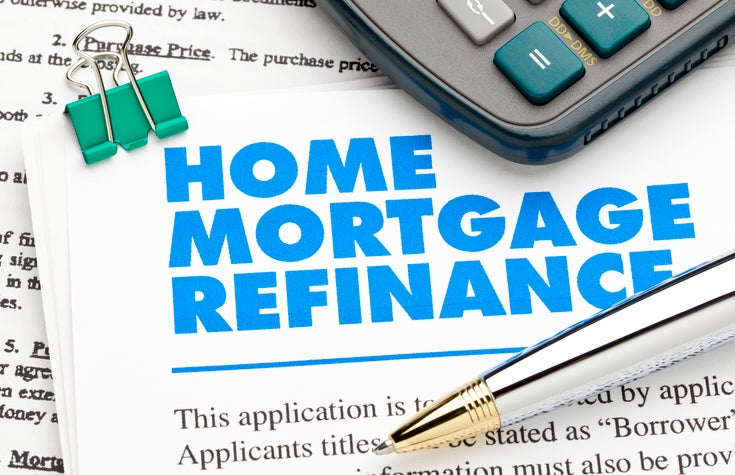The COVID-19 pandemic has Americans reviewing many aspects of their life. But refinancing? Believe it or not, it’s been a common question lately.
During the week ending on March 6, 2020, for example, mortgage refinancing applications increased 79 percent week over week. The surge has continued into April, with refinance applications for the week ending on April 3, 2020 up 144 percent over the prior year.
The huge climb in mortgage refinance applications was prompted, of course, by the Fed’s benchmark interest rate cuts in response to the pandemic. Decreases on the benchmark rate eventually filter into the mortgage market. Mortgage interest rates were already low, but after the Fed moved, they hit a record low of 3.29 percent. While they’ve ticked up a bit, they are still near the record.
The lower your mortgage interest rates, the lower your mortgage payment. However, there are other options if you’re looking to lower your mortgage bill.
How to Think about Refinance
Is refinancing your mortgage to take advantage of these low rates a smart financial move? It certainly can be. There is nothing about the current environment that changes the calculus homeowners have to run when considering a refinance.
Refinancing can be a good financial move if you lower your interest rate by at least 1 percent and if you plan to stay in your house a reasonable period of time, so that any savings allow you to break even on any refinancing costs.
Talk to a financial advisor before making any decisions. A break-even point will be different for every individual.
The current economic situation is generating a lot of questions. Contact the financial advisors at Rock House Financial. We’re here for you.
How the Pandemic is Affecting Mortgage Refinancing
Longer Times for Application Approval
While surging business may sound like an ideal situation, especially right now, the fact is, financial institutions are simply not able to deal with the exponential volume increases that the low rates have triggered.
First, many institutions don’t have the people in place to process and review the applications in a timely manner. Second, refinancing is a process requiring other steps, such as title searches, appraisals and legal review. The steep climb in refinancing applications has caused backlogs among title search companies, appraisers and real estate law firms as well as financial institutions.
Many institutions are advising customers to add 14 days to a process that normally takes 45 days – meaning that your refinance could take a minimum of two months and might encounter more than the ordinary share of frustration and delays.
Uncertain Economic Outlooks
It’s always important to consider your own economic outlook as well as the macro economic outlook when considering a mortgage refinance, but it’s especially important during the COVID-19 pandemic.
Many people have lost their jobs or seen their employment grow more uncertain due to the pandemic’s shuttering of businesses and lockdown of large portions of the United States. If this situation applies to you, you may want to think of deferring any moves toward refinancing at this time.
Remember that while refinancing can make mortgage payments lower, it also costs money. Refinancing costs can amount to roughly 3 to 6 percent of your mortgage. While you can often fold that cost into the refinanced mortgage, you will still be taking on more debt at an uncertain financial time, which is often not advisable.
More broadly, the macroeconomic climate may be uncertain in ways that can affect the advisability of refinancing. Home sales have plummeted in may areas. This is partly due to the large levels of unemployment and the uncertain business climate. But it also stems from the social distancing initiatives and lockdown mandates, which make it difficult to see a home in real life. Few people want to purchase a home they can’t physically see and explore.
Falling home sales can soften and even decrease home prices. Should you refinance when the price of your home may be falling? It’s important to consider the answer carefully.
Finally, the business outlook is uncertain in many sectors, simply because it isn’t clear when governments will allow businesses to reopen and social distancing measures to stop. Uncertainty, just by itself, can put a damper on home prices, employment and other measures important to your financial future.
Interest Rates Likely to Remain Low for Some Time
It is likely that mortgage interest rates will remain low for at least several months down the road. The Federal Reserve, which makes the decision on interest rate direction, is unlikely to raise rates while economic conditions remain weak across much of the nation.
As a result, consumers shouldn’t feel any particular rush to refinance right now.
Calculating Your Break-Even Point
How do you calculate your break-even point? There are several steps.
First, get an estimate for what refinancing will save you in monthly mortgage payments.
If you have a 30-year mortgage at a 6.5 percent interest rate and the loan is for $300,000, for instance, your payment is $2,504. If you refinance at the current 3.58 percent interest rate, the payment becomes $1,968, a savings of $536 monthly. (It may be more if the amount of equity in your home results in Private Mortgage Insurance (PMI) no longer being required. Many lenders require PMI if the equity is less than 20 percent. Bear in mind, too, that fluctuating housing prices can change the PMI calculation.)
Let’s assume your refinance closing costs would be 5 percent of your existing mortgage, or $15,000. You reach your break-even point when your monthly mortgage savings covers this cost. In this case, that’s nearly 28 months, or two years and four months. Do you plan to stay in the house longer than this? If so, mortgage refinancing may be a good idea. If not, or if you need the flexibility of being able to move without a financial loss in this period, it may not be.
Discuss your specific financial situation and concerns with a financial advisor. At Rock House Financial, we know that even a small financial move can make a big difference to your financial future.












